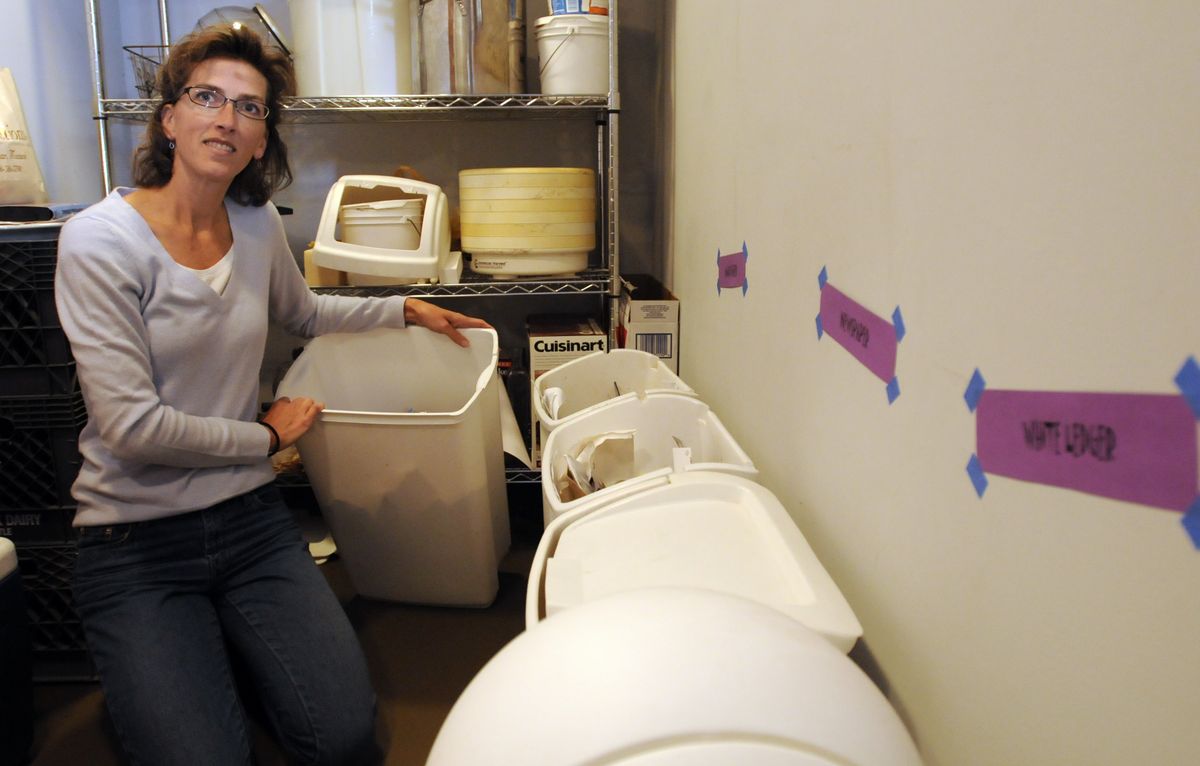Earth Friendly
Bioneers show why saving the environment is good for your pocketbook

Living a greener lifestyle not only saves the planet. It also can save money.
Americans consumes six times more energy than the world average, according to the Energy Information Administration, the statistical agency of the U.S. Department of Energy. By reducing the amount of energy we consume – for transportation, for heating and cooling our homes, for lighting and other uses – we lessen our impact on the environment as well as on our pocketbooks.
“There are many simple, practical and low-cost things that people can do in their everyday lives,” said Crissy Trask, author of “It’s Easy Being Green: A Handbook for Earth-Friendly Living” and an “eco-advisor” in Spokane. “Energy and water conservation improves the environment and it’s a money-saving opportunity as well.”
Trask – who in 1999 created www.greenmatters.com, one of the first Web sites dedicated to green living – will be facilitating a workshop on this topic Friday as part of the Bioneers Conference in Spokane. “Energy and Water Wise Living: Practical Solutions” will focus on accessible and meaningful ways for people to reduce energy and water use both on the road and at home.
The workshop will be among more than two dozen presentations that are part of a three-day gathering at Spokane Falls Community College. This year’s Bioneers conference features workshops on a variety of topics including sustainable farming methods, community gardens, visual arts, alternative transportation, economics, women in leadership and how to promote a zero-waste society.
The local event is a satellite conference of the annual Bioneers gathering in San Rafael, Calif. For the past 19 years, thousands of people – educators, biologists, farmers, economists, business people, activists and many others – have been coming together to share their vision to promote sustainability and restore environmental damage. According to organizers, those who gather in Spokane and at the 17 other Bioneers conferences nationwide represent a wide spectrum of people who combine ecological approaches with social, spiritual and political strategies. Many see Bioneers as a movement that affects every aspect of life – from the food they eat and the organizations they support to the way they get to work each day and the choices they make each time they go to the grocery store.
“The Spokane Bioneers conference offers the opportunity to tap the richness of our region’s diversity, inviting people to come together as a learning community to explore new ways of living, acting and thinking that will ensure our sustainability,” said Patty Gates of the Bioneers planning team.
This year, the Bioneers conference includes a field trip – a tour of four sites on the Spokane River led by local experts who will discuss issues that impact the river and the Spokane aquifer. Facilitated by Rick Eichstaedt, a Center for Justice attorney who represents organizations that work to protect and restore the Spokane River, the field tour will include stops at the City of Spokane wastewater treatment plant, Spokane River dams, an urban spring and the location of the proposed Whitewater Park.
Like the mission of Bioneers – “to promote practical environmental solutions and innovative social strategies to restore the Earth and heal communities” – Trask’s calling involves empowering others so that they can make simple changes that could improve their life and the world.
Her workshop, she said, won’t talk about installing solar panels and other more complicated steps that people take to live a greener lifestyle. Instead, she’ll focus on easy and low-cost changes such as installing a programmable thermostat to regulate household temperature and to save money; using compact fluorescent lights, which lasts 10 times as long and uses only a quarter of the energy consumed by incandescent bulbs; and learning to use appliances and electronics in a more conservative way to match people’s needs.
More people are aspiring to live a more earth-friendly lifestyle, she said. Some do it out of necessity. Others do it because it’s trendy. And still others have long been interested in these issues for altruistic reasons. “As along as people are interested, that’s great,” she said. “They all have an impact. … Once people open their minds and start to listen more, they take action and adjust their living patterns.”
That’s why Trask has focused her work on educating others through her Web site and blog, through her articles and book, and also through her work as an eco-advisor specializing in simple ways to create greener spaces and adopt an eco-friendly lifestyle.
Trask, 45, spent her childhood in the Midwest. Her mother, who grew vegetables in an organic garden, often talked to her about the harmful effects of pesticides and the need to respect nature. Her mother raised her with an environmental ethic, she said, so it was perhaps inevitable that she, too, would pursue a simpler, greener lifestyle. In 1999, Trask decided to create www.greenmatters.com because there weren’t very many resources at the time for people who wanted to reduce their carbon footprint on the planet. Her book, which was published in 2006, is a compilation of all the information she gathered over the years for her website.
“It’s a whole lifestyle approach,” said Trask, who moved to the Inland Northwest about nine years ago. “It’s how we behave when we shop, what we shop for, how we take things home… It’s about how we live. (The workshop) will help put people on a greener path.”